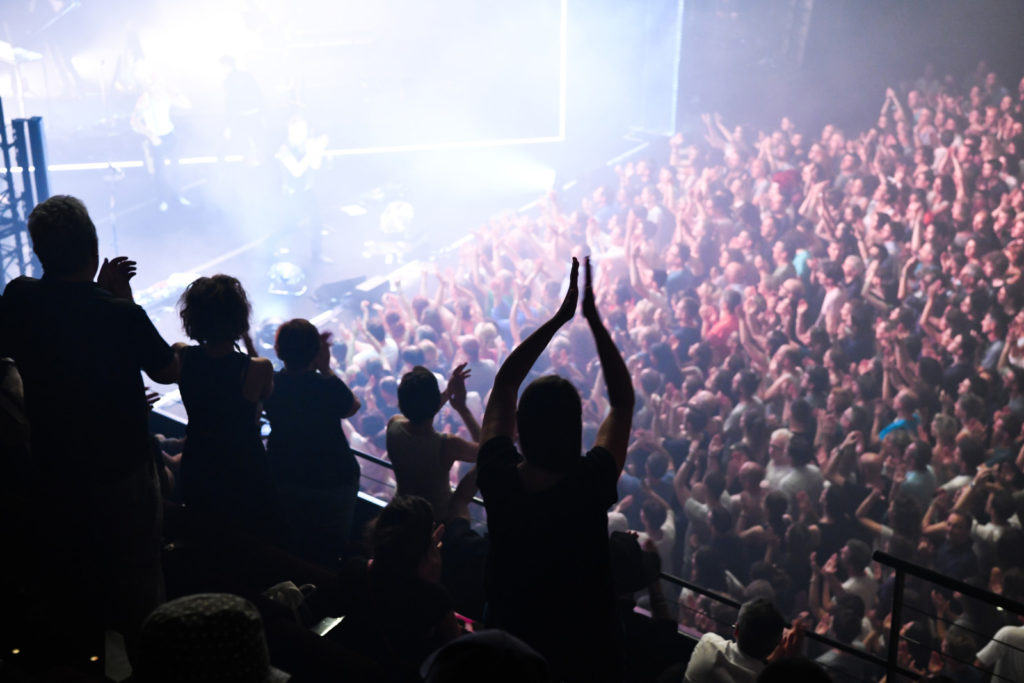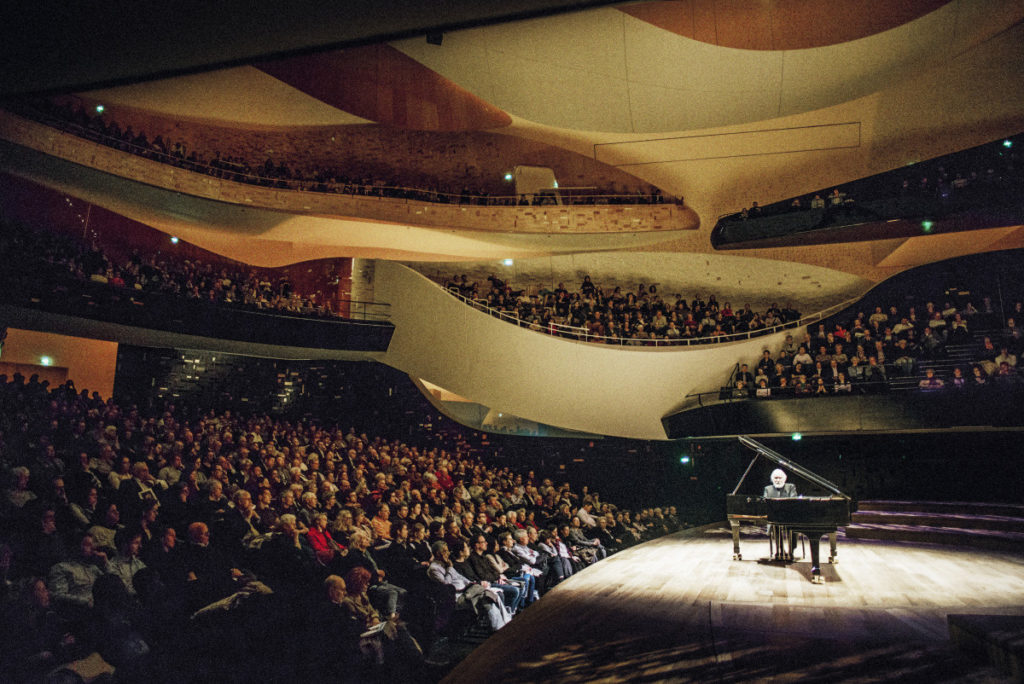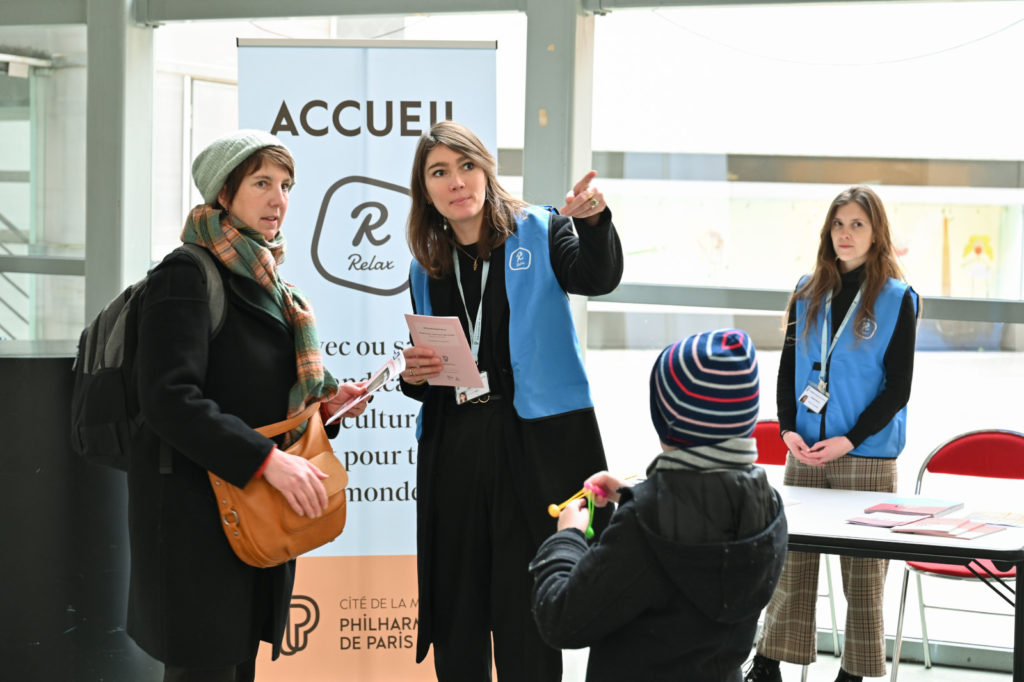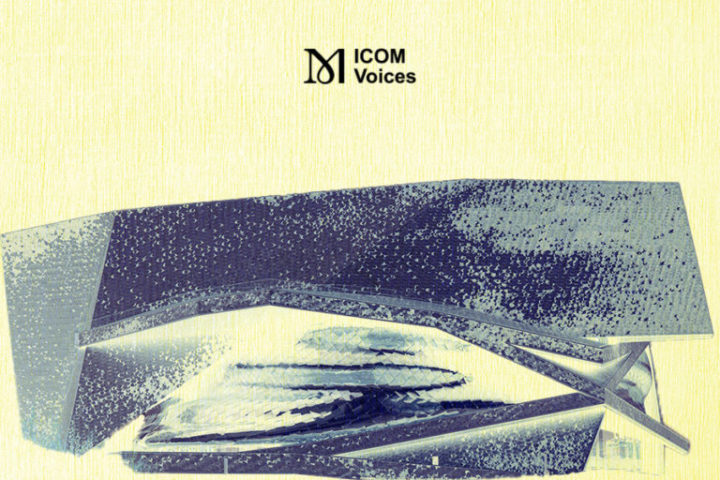
Helen Lamotte, Marine Renoir
Head of Audience Development, Educational and Social Activities and Accessibility and Accessibility Project Manager, Philharmonie de Paris
Museums have no borders,
they have a network
June 26, 2024
Key words: cultural accessibility, inclusive programmes, special needs audiences
The Cité de la Musique – Philharmonie de Paris (France), a cultural centre like none other in the world, houses four concert halls, the Museum of Music and its remarkable collection of instruments from the Middle Ages to today, the Philharmonie des Enfants, where children can play, explore, listen to, experience and feel music, spaces for exhibitions, lectures and music workshops and a media library. Since it opened in 2015, the Philharmonie has made sharing music and welcoming everyone one of the cornerstones of its mission.

The Philharmonie’s commitment to accessibility and accommodating special needs
The Philharmonie de Paris aims to help everyone find their way to music, regardless of their situation, age or special needs. Its accessibility policy engages the entire staff and encourages the co-construction of projects with the public, and it offers a wide range of activities for children and adults with disabilities or special needs, whether they are supported by medical or social institutions and services, enrolled in special needs classes (ULIS[1]) or other Ministry of Education programmes, or whether they come on their own.
From concerts and performances to music workshops, museum tours, exhibitions, the children’s philharmonic space, the media library and more, every area and service offered by the Philharmonie de Paris features specially adapted mediation tools and staff trained to meet the special needs of each individual.
Inclusive concerts and performances: responding to individual needs

For the past few seasons, the Philharmonie de Paris has been evaluating the accessibility of its spaces, tours and programming, asking how it can meet everyone’s individual needs while at the same time providing a collective concert experience.
A concert is an intimate, aesthetic and sensory experience that enriches the development and well-being of all, but it can be disappointing for some if accessibility is not considered from the outset.
The Philharmonie de Paris is working to programme more inclusive concerts and performances in order to enable all audiences to share in the collective enjoyment of music. It is also procuring equipment, such as vibrating vests, to help people experience music. We will present a selection of these initiatives below.
When Oxmo Puccino performed his Ensemble concert in the Grande salle Pierre Boulez on 18 February 2024, it was fully signed by the group Collectif Integraal. Expressing both the music and its rhythm in French Sign Language (LSF), the artistic performance allowed deaf and hard-of-hearing audiences to discover or rediscover the music of the rapper and his long-time musicians and guest artists. With the signed song approach much appreciated and in high demand among deaf people, the Philharmonie de Paris aims to offer several signed song events each season.
In autumn 2023, La Balbutie set out to change the way people think about and enjoy music by offering a unique performance experience. Audiences listened to the company’s Pleine Lune show blindfolded to awaken their senses of hearing, smell and touch. At the intersection of theatre, music and sound performance, what La Balbutie created became an immersive sensory experience for everyone.
Alongside workshops and signed song concerts for deaf and hard-of-hearing people, the Philharmonie de Paris is gradually procuring vibrating equipment to make its concerts and shows more perceptible and tangible, with the sounds of a symphony concert transformed into different vibrations that can be felt through vibrating vests. Audience members can place the vest on their back, stomach or lap to experience the music through the vibrations. The SoundX vibrating vests are currently being tested in a series of concerts with deaf and hard-of-hearing individuals to elicit their feedback and configure the technology to meet their needs.
Relax performances

In 2022, the Philharmonie de Paris signed a partnership agreement with the Culture Relax association, which supports performance venues and theatres in their efforts to facilitate access to cultural events. By making its audience rules more flexible, adapting spaces and continuing to train its staff to give everyone access to its programmes, the Philharmonie is offering people with complex disabilities the chance to enjoy a concert with other spectators while freely experiencing their emotions.
Spectators are assisted from the moment they arrive at the venue. They can come and go during the performance, voice their appreciation and even clap whenever they wish. A relaxation area is provided near the concert hall so that those who need it can take a break in a quiet space for as long as they wish during the performance. For each Relax performance, an easy-to-read and easy-to-understand booklet, designed by organisations providing employment and support for people with disabilities (ESATs) in the Ile-de-France region, guides audience members through the venue and gives them information about the performance and the artists onstage.
Each season, the Philharmonie de Paris offers at least five Relax performances as part of its general programming. From symphonic concerts to film music concerts and family shows, the Philharmonie offers a wide variety of options to allow audiences to discover the range of its offerings while considering possible needs in terms of performance times and lengths. All Relax performance spectators are informed in advance on the website and by email, and an introduction is given on the day of the concert to explain the inclusive programme.
More than 100 people have attended one of the six Relax sessions already held, and several thousand spectators have been informed and warmly welcomed the inclusive approach during a performance at the Philharmonie de Paris. Next season, the Philharmonie de Paris plans to host no fewer than six Relax performances, with the aim of opening up its range of concerts and events to as many people as possible.
[1] Unités Localisées pour l’Inclusion Scolaire, ULIS [Localised units for school inclusion]. Units for the education of pupils with disabilities at primary and secondary level.
